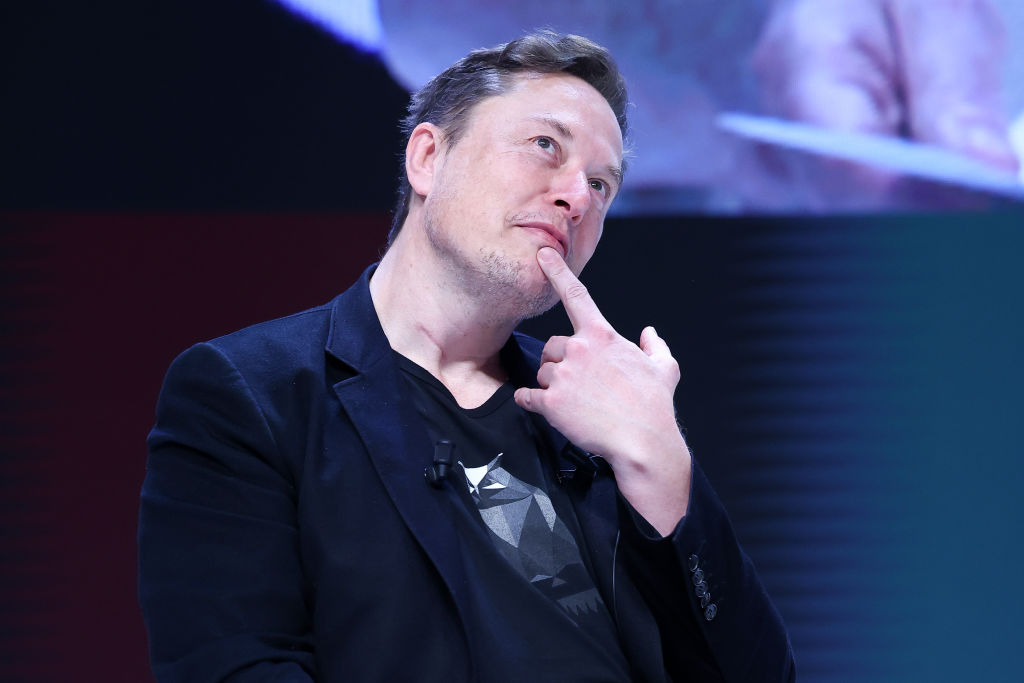In a vintage case of the censoriousness for which Keir Starmer’s government is already unhappily notorious, Labour has opted — after a fashion — to cancel Elon Musk for mean tweets. Unfortunately for the Labour PM, he may have done so just at the moment the titans of Silicon Valley begin tilting away in earnest from the kind of progressive consensus most congenial to Starmerism.
Following his less than complimentary comments on Labour’s handling of Britain’s summer riots, Musk has not been invited to the UK’s International Investment Summit, which takes place next month. He hit back on X, stating that “I don’t think anyone should go to the UK when they’re releasing convicted pedophiles in order to imprison people for social media posts.”
To my knowledge, no paedophiles were actually released to accommodate the dissident boomers of Facebook, though at least one was reportedly not jailed due to prisons being full. Starmer may well take the view that there is no need to attract Silicon Valley finance to the UK, and he may not care what Musk thinks. But if he is banking on Musk being an outlier, and the rest of Big Tech aligning ideologically with Labour’s political instincts, he could be in for a surprise: his blackballing of the outspoken and often provocative X owner comes amid a now-noticeable cooling in relations between progressive consensus and the American tech sector.
Ever since their alliance became entrenched under Barack Obama, Big Tech and Left-liberalism have seemed naturally aligned. This extended even to a revolving-door relation between liberal British politicians and Silicon Valley, as with the seamless transition of former deputy prime minister Nick Clegg from UK Government also-ran to an arguably far more powerful and influential role as President of Global Affairs for Meta. While there, he enforced a broadly progressive and sometimes palpably pro-censorship programme, including deplatforming Donald Trump in 2020 and cooperating with governments to censor “Covid misinformation”.
Arguably, though, Big Tech was never really Left-wing. The ethos of Silicon Valley has always been more libertarian than Leftist; the two only aligned to the extent that Leftism seemed to be about liberating people from constraints. But so long as profits were left to flow unopposed, Big Tech had seemed willing to swallow a measure of libertarian principle on progressive censorship.
But then Joe Biden turned on Big Tech. He set about breaking up monopolies, seeking to protect users’ data security, and constraining AI research; in the wake of this turn, Silicon Valley’s support for progressive ideology more broadly has grown palpably thinner. In a recent episode of their “Little Tech” YouTube show, for example, billionaire investors Marc Andreessen and Ben Horowitz explained why they support Trump. In their view, the Biden regime is waging all-out war on tech, via a hostile tax regime and laws constraining the nascent crypto, AI, and biotech industries, whereas Trump had signalled a more positive attitude.
Andreessen and Horowitz see themselves as the vanguard of “Little Tech” start-ups rather than the monopoly platforms. And until recently, Musk seemed the lone platform owner willing to express less than monolithically Left-liberal political views. Two swallows proverbially don’t make a summer — except that, lately, Meta owner Mark Zuckerberg seems also to be reverse-ferreting. Last month he claimed that his Covid-era censorship was not performed willingly but was instead the result of “pressure” from the Biden administration. Then, on Tuesday, he dropped further tasteful hints to the New York Times that he’s “done with politics” and is, deep down, a libertarian.
That’s still only three swallows. But they are heavy hitters, and more will likely follow. Perhaps a greater vibe shift is afoot, in a sector that was never statist to begin with and only went along with a measure of statism while the money was good and the power behind it was real.
Faced with a British government that has so far projected an unhappy mix of economic morass, petty statism and progressive moral grandstanding, what will these newly out and proud Right-libertarians among America’s tech titans do? Many will likely just shrug and walk away, taking their money and energy with them. Good riddance, some will doubtless say. But Starmer’s willingness to court the active dislike of American Big Tech is, to say the least, an ambivalent counterpoint to his announcement yesterday that “Britain is open for business.”











Join the discussion
Join like minded readers that support our journalism by becoming a paid subscriber
To join the discussion in the comments, become a paid subscriber.
Join like minded readers that support our journalism, read unlimited articles and enjoy other subscriber-only benefits.
Subscribe